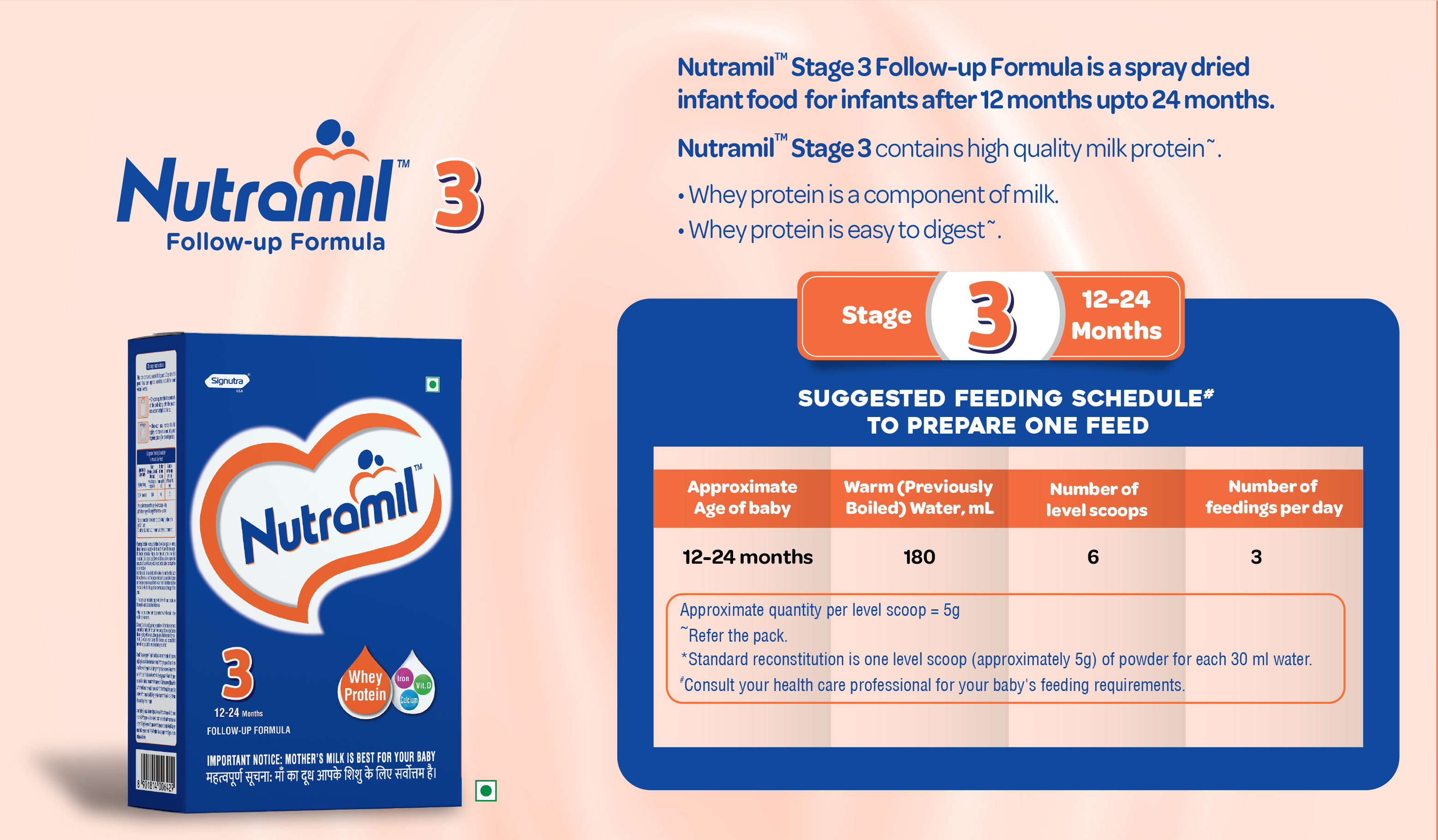

















The World Health Organization (WHO)* has advised that pregnant women and new mothers be made aware of the benefits and superiority of breastfeeding, especially the fact that it provides the best nutrition and protects the babies from disease. For first 6 months, breast milk is all that is needed for the baby. The doctors will guide you on preparation for and maintenance of breastfeeding, with a focus on the importance of the well-balanced diet both during pregnancy and after delivery.
Unnecessary introduction of partial bottle-feeding or other foods and drinks will have a negative effect on breastfeeding. Therefore, consult your doctor or the healthcare professional before introducing anything other than breast milk.
Breastfeeding is much cheaper than feeding an infant milk substitute. However, if a doctor or healthcare professional recommends infant milk substitute in addition to breastfeeding or as its replacement during the first 6 months, keep your family circumstances and cost in mind before deciding whether to use an infant milk substitute. If you have decided to use infant milk substitute, it's crucial that you are provided with instructions on proper preparation methods, stressing that using un-boiled water, unsterilized bottles or incorrect dilution can make your baby ill. You should also be aware of the difficulties of reversing your decision not to breastfeed.
Immediately after delivery, your breast milk is yellowish and sticky. This milk is called colostrum which is secreted during first week of delivery. Colostrum is rich in many nutrients as it contains proteins and anti-infective properties which are of great importance for your baby's defence against dangerous neonatal infections. It also contains higher levels of vitamin A. Breast milk is a complete and balanced food and provides all the nutrients needed by your baby in the first few months of birth and is always available and needs no utensils or water (which might carry germs or fuel) for its preparation.
Breastfeeding is much cheaper than feeding an infant milk substitute as the cost of extra food needed by you is negligible compared to the cost of feeding infant milk substitute. The mothers who breastfeed usually have longer periods of infertility after childbirth than non-lactators. Breastfeeding immediately after the delivery enables the contraction of the womb and helps you to regain your figure quickly.
Breastfeeding is successful when your baby suckles frequently, and you are confident enough to breastfeed. Doctors do encourage and support the mothers who have a natural desire to breastfeed their baby by giving them practical advice and making sure that they have the support of their relatives. You should adequately take care of your breast and nipples during your pregnancy. It is also equally important that your doctor puts your baby on to your breast as soon as possible and make you and your baby stay together after the delivery in hospital (this is called “rooming-in”). You should make the baby have the colostrum as it is rich in many nutrients and its anti-infective factors protect your baby from infections during initial days of its birth. The practice of discarding colostrum and giving sugar water, honey, butter or other concoctions should be strongly avoided. Let your baby suckle on demand or whenever they cry. You should also keep your body and clothes and that of your baby always neat and clean.
$ The images shown are for illustration purposes only
TM: Trademark under license from Signutra Inc., USA
®: Registered Trademark under license from Signutra Inc., USA